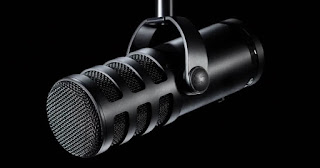This Wim Wenders (Paris, Taxas, The American Friend) film is a moving and beautifully created character study depicting the everyday life of a toilet cleaner in Tokyo! We follow his endlessly mundane daily routine, which he executes with very few words, injected with a small handful of encounters with other characters.
Our middle-aged janitor is Hirayama, played to perfection by Koji Yakusho (Babel, Memoirs of a Geisha), going about his work from morning routine in his house, where he lives alone, tending to his plants, preparing for his day in the same way each day, executing it in similar fashion, eating his same lunch on the same park bench, taking his laundry to the laundrette on his day off each week, waiting for it to finish whilst eating the same meal in the same bar - we are given to believe that he's a victim of OCD (almost) throughout, via his exacting, repetitive behaviours and simple life, forming the character study. But before you nod off, should you not be able to get alongside and appreciate the acting and see where it's going, there's more.
The film is an ode to Japanese culture, societal attitudes and beautiful Tokyo whilst drilling down to show us where and how the ordinary, working folk live. The mundane job which he has, he executes with more of the exacting standards. We stay with him as he cleans and cleans, taking pride in his role, until his face can be seen in the porcelain - and even as he whips out a mirror to clean the places eyes cannot routinely see.
He has a colleague, a youngster with a more modern outlook, lazy and care-free. He sits around most of the time and is more interested in hooking up with a young girl in the mix. He's Takashi, played by Tokio Emoto and she, Aya, played by Aoi Yamada, and their part in the film also brings some comic moments in contrast to the simple and contemplative Hirayama. He's taken in by the pair of them easily as they introduce much of the great music to proceedings, mostly 1970's songs, headed by Lou Reed's Perfect Day (fitting nicely in with the film's title and theme).
The music is super throughout and there's even time to reflect on traditional vs new as discussions are held about compact cassette tapes. They even visit a backstreet record shop at one point where it is clear that old music formats are coming back, regardless of the fact that the comic youngsters don't even know which way the tape goes into the player! Hang about for the credits, too as a reflective and poignant solo piano tinkers out Perfect Day again, beautifully.
Next up, amidst the ongoing routines, is his sister's teenage daughter who turns up on his doorstep and expects to stay with him, which she does for a few days, and asks to go to work with him. She's fallen out with mum and we get a little insight at this point as to the very different lives Hirayama and his sister have and suggestions that their father has abused him in the past. This is a passing reference, very moving whilst it lingers, but on we go to the next encounter. This, with the lady who runs the bar, her sick ex-husband and a reflective exchange on the riverside between them.
The tone of the film slides neatly into a reflective, considered one at this point as our central character reevaluates his life, the people around him and the impact that their similarly ordinary existences and problems have on his view of the world, life's meaning and value. It's a time where Yakusho is able to flex his talent too as he displays a range of emotions, glances and facial expressions which leave no place for words - there's no need.
The film is about change and modernisation, traditional values and cultural norms as they appear to drifting away, Hirayama symbolic of the latter and many younger members of the cast, who all do terrific jobs, bringing on the former. But it also speaks about the potential for bridge-building between the two and the characters from each side blend and warm to the other.
There's no doubt that Yakusho carries the film from start to finish and it can be enjoyed simply for his acting, or certainly that and the thoughtful and interesting cinematography throughout. Yes, subtitles as you'd expect with a Japanese film, but actually, there's not a huge amount of dialogue anyway. It's a wonderful piece of cinema which is highly recommended.





No comments:
Post a Comment